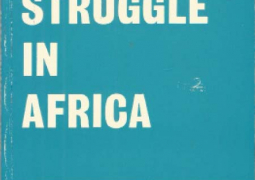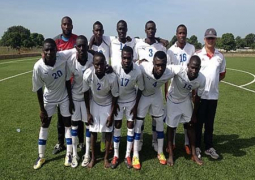
"Ultimately the justification for the promotion and protection of Human Rights is that they are inherent to the human being. If as the preamble to the African Charter so rightly proclaims: - ' that fundamental human rights stem from the attributes of human beings', why should their enforcement be defeated by the failure of a State Party to a treaty to incorporate the treaty and/or its contents into domestic law? " Hassan B. Jallow.
The 45th Ordinary Session of the African Commission on Human and Peoples Rights, currently underway in the Gambia, is a fitting occasion to reflect on the importance of International Law in promotion and protection of Human Rights. The jurisprudence of the Commission, which is headquartered in Banjul, the Gambia, has not been fully integrated into the Gambia's legal system. Apart from a few Human Rights Organizations, NGOs, CSOs, Lawyers and activists, the work of ACHPRs has remained largely unknown in the Gambia but most importantly the substantive law i.e. the Banjul Charter is not regarded as part of the Laws of the Gambia (Section 7 of the 1997 Constitution).
The African Charter on Human and Peoples' Rights ("Banjul Charter") extrapolate important human rights guarantees, including the rights to life, integrity, human dignity, liberty, security, non-discrimination, and a fair trial. It further guarantees freedom of conscience, religion, association, assembly, and movement, as well as the rights to property, fair wages, health, education, family, a healthy environment, and economic, social and cultural development. All these rights are eloquently guaranteed in 1997 Constitution of the Gambia. However, the issue is not to only state the guarantees in the abstract but to put in place mechanisms and systems to effectively realize the rights guaranteed. For instance South Africa has a
The Banjul Charter when it was adopted in 1981 did not come with a Court, instead to guarantee these rights, the Charter provides for the establishment of a Commission to promote, protect, and interpret the human rights provisions enshrined in the Charter. The absence of a Court has made some critics described the Banjul Charter as a toothless attack- dog. However, following the transformation of the OAU into the AU, an
African Courthas been established and is fully seized of its mandate to enforce Human Rights. But after more than a quarter of century in existence the Banjul Charter has not changed the human rights situation in Africa, massive and systematic violations of basic human rights have continued to be committed by Africa governments. It is early days yet to develop a critical appraisal of the African Courton Human and Peoples' Rights which is considered by most Lawyers is a significant milestone in the field of international human rights law.After fifty years of independence the AfricanState has demonstrated that it is impervious to the fresh water of human rights, in spite of drawing deep from the wells of international Law and entrenchment of human rights norms in the domestic legal systems of African states. Systematic, unprecedented breaches of human rights have repeatedly occurred in Africa since independence. Reports of extra-judicial executions, massacres, disappearances, torture, arbitrary detention, and political surveillance and harassment are documented throughout the region. Violations of the rights to health, education, food, water, housing, environment, and employment security are equally rampant, though underreported in the human rights literature. These violations often take place in a context of near total impunity.
Even after the Commission has found a memberState to be in violation of the principles of the Charter all it does and can do is to require the MemberState to cease the violation of the Charter. These directives are sometimes complied with by the State Party but more often than not the rulings of the Commission have the potency of naming and shaming, as most states care about their international reputation. Beyond this though, one is doubtful of the actual efficacy of international law remedies in human rights cases. The new
African Courtmay as well fall prey to the same tendency and will have little impact if it is handicapped in the same way that domestic judiciaries are hamstrung by a dysfunctional executive with total disregard for the rule of law and human rights. Where court orders are openly flouted, and international law is not regarded as law.Therefore International norms and regional laws have a significant role to play in the promotion and protection of human rights as sources of inspiration for the respect and observance of Human rights and provide benchmarks for acceptable behavior in a rapidly integrating world. To the extent that the existence of the Banjul Charter and
African Courtserves as reminders to States about their Treaty obligations and to the possibility of providing additional recourse to victims of violation of Human rights, International Law should be recognized as part and parcel of the laws of the GambiaAlmami Fanding Taal is Legal Practitioner with interest in Human Rights, Media Laws, and Good Governance & Institutional Development.




